Discover Analyse Podcast
Analyse Podcast

Analyse Podcast
Author: Bernard Leong
Subscribed: 530Played: 10,112Subscribe
Share
© Bernard Leong
Description
A weekly podcast exploring the pulse of business, technology, and media worldwide. Hosted by Bernard Leong, the show features in-depth conversations with leading journalists, executives, entrepreneurs, and thought leaders on the ideas and forces shaping global markets — from Asia to the rest of the world.
510 Episodes
Reverse
Simon Milner, Vice President of Public Policy for Asia Pacific at Meta, joins us to explore how Meta's deliberate commitment to open source AI is reshaping innovation across the world's most diverse and dynamic region. He shares his journey from the BBC to nearly 14 years at Meta, where he built policy teams from the ground up to lead Meta's Asia Pacific strategy. Simon unpacks Meta's open source philosophy behind the Llama models, explaining how openness accelerates innovation through community scrutiny, provides governments greater control over sensitive data, and enables local developers to fine-tune models for languages like Korean, Vietnamese, and Bahasa Indonesia. He highlights compelling use cases across the region in Japan and Korea. Looking ahead, Simon reveals why the future of AI is not on our phones but in wearables like AI-enabled glasses that create always-on assistants seeing what we see and hearing what we hear, enabling us to be more present in the world while Meta supercharges its family of apps serving billions globally. Last but not least he shares what great looks like for Meta in the Asia Pacific on open source AI."We believe that openness is actually a really key feature of accelerating innovation because it fosters inclusion, it builds trust, and it ensures that the benefits of AI are more evenly distributed around the world.The openness of models allows other people to, as they were, push and pull and prod at the models at a fundamental level in order to see where might the problems be. And so that kind of community, the developer community scrutiny around open source is fundamental to spotting issues and addressing them quickly.Actually, the story of AI is about yes... that is important. The investments that companies like Meta and others are making is important, but actually, it's really about local ownership and local innovation." - Simon MilnerEpisode Highlights: [00:00] Quote of the Day by Simon Milner from Meta[01:37] Simon's journey: BBC, BT, Meta's 14-year evolution[03:12] Navigating diverse regulatory landscapes across global markets[05:24] Career advice: Take risks, embrace unexpected opportunities[07:54] Open source AI democratizes access and innovation[10:21] Meta sparked open model trend, others followed[14:49] Open models enable faster innovation through community[16:21] Government control and data sovereignty with open[19:13] Governance mechanisms: transparency, red teaming, community engagement[22:49] Meta learned responsible AI through 20 years experience[25:49] Singapore, Japan, Korea developers using Lama locally[28:26] AI isn't just big companies and includes local innovation[31:15] Keeping AI open prevents fragmented national bubbles[34:01] Governments balancing open innovation with national interests[37:00] Future AI: wearables and glasses, not phones[38:19] Always-on AI assistants seeing and hearing you[41:35] Supercharging Meta apps and building new products[42:00] ClosingPodcast Information: Bernard Leong hosts and produces the show. Proper credits for the intro and end music: Energetic Sports Drive and the episode is mixed and edited in both video and audio format by G. Thomas Craig. Visit our Analyse main site: https://analyse.asia
Fresh out of Oracle AI World 2025, Chris Chelliah, Senior Vice President of Technology and Customer Strategy for Japan and Asia Pacific at Oracle, joins us to unpack how Oracle is positioning itself as the definitive enterprise AI platform across the region. He shares his career journey from a computer science geek working on distributed databases to leading technology strategy across a market representing two-thirds of the world's population. Chris explains Oracle's comprehensive four-tier AI stack—infrastructure, data platform, applications, and agentic orchestration—emphasizing how this unique full-stack ownership enables enterprises to consume AI out of the box and extend seamlessly without ripping and replacing existing systems. He highlights compelling use cases from financial fraud detection and healthcare automation to precision agriculture and energy grid optimization. Closing the conversation, Chris shares his vision for what great Oracle will look like in Asia Pacific, continuing its 50-year legacy as the behind-the-scenes platform provider powering everything from OpenAI and TikTok to global banking infrastructure. What's been consistent for Oracle is to be a platform provider that helps organizations unlock full value of their data. Today it is all about AI and unlocking the value of your data in AI, and cloud is a mandatory enabler. With AI and agentic AI, an agent is effectively an employee—it's an automated employee, a process, a workflow. You want your employees to be within your ecosystem, within your firewall. AI thrives at the edge because that's where inference happens. With AI and agentic AI, an agent is effectively an employee—it's an automated employee, a process, a workflow. You want your employees to be within your ecosystem, within your firewall. AI thrives at the edge because that's where inference happens. - Chris ChelliahProfile: Chris Chelliah, Senior Vice President of Technology and Customer Strategy for Japan and Asia Pacific at Oracle https://www.linkedin.com/in/chrischelliah/Episode Highlights: [00:00] Quote of the day by Chris Chelliah[02:10] Chris's journey from computer science to enterprise tech[03:13] Technology tinkering and Oracle's innovation culture explained[04:17] Two-thirds world population drives APJ market potential[05:06] Career advice: Find passion, own your brand[06:54] Oracle's mission: Unlocking data value for enterprises[07:58] 47,000 customers, 44% yearly consumption growth in JPAC[08:51] Oracle AI World 2025: AI changes everything announcement[09:12] Four-tier stack: Infrastructure, data, applications, agents[11:25] AI Data Platform enables production-grade AI systems[14:14] AI Agent Studio and Marketplace solve scaling challenges[15:12] Agents as higher-level abstraction for enterprise automation[16:27] Real-world AI use cases across industries shared[18:49] Multi-cloud strategy accelerates enterprise AI adoption[21:16] Partners enable scale with 100 marketplace solutions[23:01] Convergent AI: Consume applications then extend capabilities[26:51] Multi-cloud and multi-model future requires strong governance[27:31] Four-tier security isolation from infrastructure to applications[29:57] AI agents need enterprise-level data residency controls[31:02] Using AI to accelerate cloud migration skills[[33:08] Design thinking to working prototype in days[36:10] Success metrics: Beat your personal best daily[39:55] Why Oracle differs: Only four-tier stack player[43:01] What great looks like for Oracle in the Asia Pacific[45:51] Closing Podcast Information: Bernard Leong hosts and produces the show. The proper credits for the intro and end music are "Energetic Sports Drive." G. Thomas Craig mixed and edited the episode in both video and audio format.
Fresh out of the studio, we commemorated the 10th anniversary of the e-Conomy SEA [Southeast Asia] Report with Sapna Chadha from Google, Florian Hoppe from Bain & Company, and Cassie Wu from Temasek, celebrating a decade of tracking Southeast Asia's digital transformation. The panel reflected on the region's remarkable achievement of reaching $300 billion in GMV—exceeding the original $200 billion goal by 1.5x—alongside revenue growth of 11x over the past decade. The panellists examined pivotal themes including Southeast Asia's position as the world's most AI-curious region with three times more interest than elsewhere, the explosive rise of video commerce and the maturation of digital financial services. The conversation explored the expansion from SEA-6 to 10 ASEAN countries, the ecosystem's resilience through multiple crisis cycles, and the shift from growth-at-all-costs to sustainable profitability. The episode concludes with each panellist sharing their vision for 2030, emphasizing building trust in AI adoption, creating an inclusive AI economy that benefits SMEs alongside large platforms, and navigating the AI transition gracefully to unlock innovation while addressing employment challenges—underscoring Southeast Asia's evolution from digital catch-up player to global innovation leader rewriting the playbook for digital adoption."We set this audacious goal of 200 billion by 2025. People told us we were crazy. In 2016 when we put that ambition out there, we've actually reached 1.5x that and we've hit 300 billion. And so it's just reflective of this incredible economy." - Sapna Chadha"Indonesia e-commerce still I think is larger or about the same size as all of India e-commerce. And yet the attention tends to be a little bit veering away from Southeast Asia, but this is actually a real economic powerhouse I think for all of Asia Pacific." - Florian Hoppe"Southeast Asia as a region, as we think about digital economy adoption, we are not playing catch up anymore. In many ways we're leading the digital adoption. We're writing how digital economy, how digital adoption could look like for a population and demographic like us." - Cassie WuProfiles: Sapna Chadha, Vice President Southeast Asia and South Asia Frontier, Google Asia PacificFlorian Hoppe, Partner at Bain & CompanyCassie Wu, Director, Southeast Asia at Temaseke-Conomy SEA 2025: https://economysea.withgoogle.com/Episode Highlights:[00:00] Quote of the Day by Sapna Chadha, Florian Hoppe & Cassie Wu[01:17] 10th anniversary of e-Conomy SEA Report[03:00] Digital economy hits 300 billion, exceeding goals[04:09] Ecosystem resilience through multiple crisis cycles[06:10] Report expands from SEA-6 to ASEAN-10[08:13] Southeast Asia most underappreciated AI opportunity[09:31] Indonesia e-commerce matches all of India[10:04] Region leading digital adoption, not catching up[12:13] Cash no longer king, payments fully inverted[13:00] Revenue growth 11x over past decade[15:00] 300 billion GMV despite headwinds and tariffs[16:00] Video commerce grew 5x in three years[19:03] Digital payments north of 60% of transactions[23:32] Super apps unique to Southeast Asia ecosystem[25:45] Data center capacity growing faster than anywhere[27:01] Lower labor costs delayed AI adoption initially[31:00] Ecosystem healthier than ever before[33:08] Talent is the critical AI bottleneck[35:19] Digital infrastructure must align with green economy[39:00] Southeast Asia remains globally underappreciated[40:39] Can Southeast Asia leapfrog into AI era[43:00] ClosingPodcast Information: Bernard Leong hosts and produces the show. The proper credits for the intro and end music are "Energetic Sports Drive." G. Thomas Craig mixed and edited the episode in both video and audio format.
Fresh out of the studio, Arnaud Frade, Managing Partner at Mesh Advisory and author of the upcoming book The Sentient Startup, joins us to explore how AI is fundamentally transforming entrepreneurship through the radical concept of AI as a true co-founder rather than merely a tool. He distinguishes between startups that are merely "AI-onboard" versus true sentient startups where AI operates as part of how the business is run, and introducing the concept of Machine Resources (MR) as a new organizational function alongside Human Resources to manage evolving AI models and maintain knowledge integrity. He emphasizes the co-intelligence model over the sterile human-versus-machine debate, highlighting how the 95% AI project failure rate stems from organizational issues rather than technology problems—a reality perfectly captured by the Banani framework (Brittle, Anxious, Non-linear, Incomprehensible) that explains why companies struggle with AI readiness. Closing the conversation, Arnaud shares what great looks like for The Sentient Startup: being part of the essential conversation about AI governance, accessibility across income levels, child safety, and building better regulations."The entire debate on human versus machine is extremely in a way sterile because it very quickly veers towards the science fiction, the movies, the images we have, and it forgets the point about what can we gain. but what can we gain in the context of having accountability and integrity with it? I think this is where the debate becomes more complex. So for me that's the bigger point is this is not about having less people. It's about having people doing better things and using their talent to really scale what they can do in that model of co-intelligence. " - Arnaud FradeEpisode Highlights:[00:00] Quote of the Day by Arnaud Frade[01:00] Introduction: Arnaud Frade [02:49] Arnaud's career journey [05:27] Advice: stick to values and volunteer for opportunities [07:21] Arnaud's story on his first book about algorithmic marketing [09::32] Sam Altman's solopreneur unicorn comment was the epiphany [10:04] Sentient startup: AI as co-founder, enhanced by co-intelligence [12:15] AI onboard versus AI as true co-founder distinction[16:45] Barriers to entry reducing with AI and agentic models[23:40] MIT report: 95% of AI pilots fail organizationally[28:15] Need overlay systems for effective agentic AI[30:45] Culture: retain humanity when engaging with AI[36:10] Governance frameworks for AI decision-making transparency [40:10] Banani framework: brittle, anxious, non-linear, incomprehensible[42:16] Co-intelligence model versus human versus machine debate[43:19] Goal: be part of the conversation on AI[44:15] Focus on regulations, access equity, and child safety[45:00] ClosingProfile: Arnaud Frade, author of "The Sentient Startup" which will launch on May 19, 2026 via Penguin Random House. Register at thesentientstartup.com for community updatesLinkedIn Profile: https://www.linkedin.com/in/arnaudfrade
Fresh out of the studio, Ralph Haupter, President & CRO, Small Medium Enterprises and Channels at Microsoft, joins us to explore how Microsoft is empowering 400 million small and medium businesses globally across 56 counties through a partner-first strategy that combines platform standardization with deep specialization. He shares his career journey spanning over 20 years at Microsoft, from running Europe to leading Greater China, building Asia's geographical operations in Singapore, and eventually taking on global SME strategy. Ralph explains that Microsoft's unique advantage lies in being a platform company at its finest, offering a complete technology stack from productivity to infrastructure, security, and applications—all with core AI integration—while relying on a specialized partner ecosystem to deliver local expertise and support. He highlights how partners are creating entirely new business models on agentic AI while emphasizing the four critical partnership moments from transaction to ongoing support that most companies neglect. Closing the conversation, Ralph shares what great looks like for Microsoft. “The partner program for us is a place where we want to have expertise for our customers. The only way to make that happen is to standardize on portfolio and standardize on offering.If you don’t provide standardized offers — if the experience in Word, for example, is different in one country than in another — you can’t build an ecosystem that helps partners scale with expertise. I call that a platform company at its finest.We have the full assortment — from the productivity world to infrastructure, security, and applications. And if you’re a small or medium enterprise, the last thing you want is to have four meetings with four people, serving four different types of coffee to four different vendors, just to get a full-stack solution for your business.” - Ralph HaupterEpisode Highlights: [00:00] Quote of the Day by Ralph Haupter [00:54] Ralph's 20+ year Microsoft career journey from Europe to China to Global [02:19] Ralph's Experience in Microsoft Greater China [04:24] Giving space to local country leaders [06:16] Career advice: Get out of comfort zone [08:02] Microsoft's 400 million SME customer opportunity [11:00] AI accessibility for small business competitiveness [13:09] Satya's vision: Empower every organization globally [15:00] Microsoft as AI platform company strategy [17:24] Standardization enables partner ecosystem at scale [21:22] Security partners drive consultative innovation [25:15] Full stack portfolio simplifies SME technology [28:00] Training investment for partners and customers [32:00] Four critical partnership moments: Sales to support [35:00] Local partner presence matters by geography [40:36] Scale requires clarity, simplicity, and standards [42:36] Global Leadership Lessons: Learning from positive performance signal deviations [45:22] Customers should ask partners for expertise [47:34] What does Great Look Like for Microsoft SME & Channel Globally [48:00] ClosingProfile: Ralph Haupter, President and CRO, Small Medium Enterprises and Channel (SME&C), Microsoft LinkedIn: https://www.linkedin.com/in/ralphhaupter/Podcast Information: Bernard Leong hosts and produces the show. The proper credits for the intro and end music are "Energetic Sports Drive." G. Thomas Craig mixed and edited the episode in both video and audio format.
Fresh out of the studio and we hit our 500th episode milestone, guest host Yana Fry from Yana TV turns the tables on Bernard Leong, CEO of Dorje AI and host of Analyse Asia, in a special ask-me-anything format. We start with Bernard's journey from finding his first guest to navigating 11 years of podcasting, revealing his 12-word life philosophy: "Learn from everyone, follow no one, observe the patterns, work like hell." Following on, Bernard shares how his theoretical physics background provides the tools on everything from digital transformation to building Dorje AI's vision of reimagining ERP systems. The conversation dives deep into Bernard's pragmatic idealist worldview, product management philosophy and focus on the future. Bernard announces a major rebrand: Analyse Asia is dropping "Asia" to become the Analyse Podcast as it expands to a global audience, marking a new chapter in the show's evolution."For Dorje AI, what great looks like is being able to solve the ERP problem for businesses. It could take five years, ten years, or even two decades — because every technology adoption cycle takes time. We’re at the beginning of a massive shift, but many still cling to the old ways of doing things. The one thing I’ve learned about digital transformation is this: everyone loves transformation, but they hate to change. Everything that people say will happen in two years usually takes five.When I think about Analyse Asia, greatness for me is being able to do an interview without looking at a set of questions — to tease out a guest’s story authentically, without prejudice, without being a fanboy. Just getting the story out. If I can do that, that’s great. Of course, hitting a million subscribers would be fantastic — that’s the next milestone I’m chasing. But for me, it’s always: ‘I’ve reached this milestone — what’s next?’When you think about frugality at the highest level, it’s not about resources — it’s about time. The real measure is how much time you can spend doing what truly matters. That’s what great looks like for me: asking, what’s the minimum amount of time I can make the maximum impact? Maybe I’ll never fully get there. But if we can say we lived this life without regret — that’s enough." - Bernard LeongEpisode Highlights:[00:00] Quote of the Day by Bernard Leong[01:00] Introduction: Yana Fry (Guest Host) and Bernard Leong[02:05] Early Days of Analyse Asia Finding first guest was biggest initial challenge[04:30] Looking at Everything from a corporate executive like a theoretical physicist[06:23] Podcast interviews are combinations of science and art[08:19] Pragmatic idealist philosophy shapes Bernard's worldview[10:17] 12 Word Advice: Learn from Everyone, Follow No One, Observe the Patterns & Work like Hell[13:00] Dorje AI solving fundamental ERP ledger problems[16:15] Attacking competitors' strongest strength - Lessons of history from Kublai Khan[21:34] New is Easy and Right is Hard for Product Management[24:00] Audio to video was hardest podcast pivot[29:25] Japanese craftsman approach keeps Bernard going[33:09] Analyse Asia rebranding to Analyse Podcast globally[39:55] Father's 50-year loyalty shaped Bernard's management philosophy[44:00] Asia is diverse cities, not monolithic continent[46:00] Most problems aren't AI problems after questioning[51:00] What does Great Look Like for Dorje AI, Analyse Asia and Bernard Leong?[52:10] ClosingProfile: - Bernard Leong, Host of Analyse Asia Podcast, CEO of Dorje AI https://dorje.ai, Adjunct Associate Professor from NUS Business School & Institute of Systems Science. - Guest Host: Yana Fry from @yanatvsg which we highly recommend and subscribe to: https://www.youtube.com/@yanatvsgLinkedIn: https://www.linkedin.com/in/yanafry/Podcast Information: Bernard Leong hosts and produces the show. The proper credits for the intro and end music are "Energetic Sports Drive." G. Thomas Craig mixed and edited the episode in both video and audio format.
Fresh out of the studio, Ling Hai, President of Asia Pacific, Europe, Middle East, and Africa at MasterCard, joins us to explore how payment networks are evolving to embrace stable coins, AI agents, and the future of digital commerce across diverse global markets. He shares his career journey from management consulting to retail banking and eventually to MasterCard. Ling Hai shares that MasterCard is a global technology company that creates interoperability and universal acceptance, with technology services like cybersecurity, data insights, and consulting increasingly contributing to revenue beyond traditional payment processing. He highlights compelling innovations from Asia Pacific leading the way, including Singapore's nationwide open loop transit system and MasterCard's approach to stable coins as settlement vehicles alongside traditional currencies, while emphasizing how the company bridges the DeFi universe with the physical merchant world through on-ramp and off-ramp solutions for crypto adoption in markets like Latin America. Closing the conversation, Ling Hai shares what great looks like for MasterCard to become the operating system of commerce and the digital economy.“MasterCard, in the end, is a global technology company. We run a global network, and we’re very much a data company. So, in all of this, when we handle people’s money and when we handle people’s data, trust is the most important thing. If we lose that, we lose our business. For us, that trust factor is absolutely critical — it’s embedded in everything we do.As the world evolves, we’ve gone from handling payments in the physical world, to e-commerce in the digital world. Tomorrow, with AI, it’s going to be agentic — agents will be doing commerce for us. But the common thread across all of this is still safety, security, trust, and also ease of use.Today’s consumer doesn’t want to trade off between convenience and security — they want both. So when we think about our solutions and services, that’s part of our design thinking. We must ensure they are easy, convenient, safe, secure, and trusted by everyone.” - Ling HaiEpisode Highlights:[00:00] Quote of the Day by Ling Hai[01:00] Introduction: Ling Hai[03:00] Overview of Mastercard and balancing global consistency with localization[06:00] MasterCard's vision: inclusive digital economy for everyone[09:13] Open loop transit leading digital payment adoption[11:14] Asia Pacific: most advanced multi-payment region globally[14:03] MasterCard is a global technology company focused on trust.[16:00] Stable coins create more use cases for MasterCard[20:38] Two universes: DeFi and traditional finance will coexist[21:07] Payment secret sauce: resolving disputes when things fail[24:00] Stable coins stronger for B2B, wholesale settlement use[25:38] Be at the table or you're on table[29:00] AI enables personalization beyond one-size-fits-all marketing[31:24] Agent commerce requires new rules and payment standards[32:23] Tokenization and authentication: no regret moves for future[34:16] MasterCard network supports real-time payments beyond cards[35:00] What does great look like:: Operating system of commerce and digital economy[36:00] ClosingProfile: Ling Hai, President of Asia Pacific, Europe, Middle East, and Africa, MastercardLinkedIn: https://www.linkedin.com/in/ling-hai-a7952ab8/Podcast Information: Bernard Leong hosts and produces the show. The proper credits for the intro and end music are "Energetic Sports Drive." G. Thomas Craig mixed and edited the episode in both video and audio format. Here are the links to watch or listen to our podcast:Analyse Asia Main Site: https://analyse.asiaAnalyse Asia Spotify: https://open.spotify.com/show/1kkRwzRZa4JCICr2vm0vGl Analyse Asia Apple Podcasts: https://podcasts.apple.com/us/podcast/analyse-asia-with-bernard-leong/id914868245
Fresh out of the studio, Yuying Deng, Co-founder and CEO of Esevel, shares her transformative journey from corporate lawyer to healthcare operator to tech entrepreneur with our guest host Yana Fry from Yana TV. Yuying discusses how the pandemic's sudden shift to remote work in April 2020 revealed critical gaps in IT infrastructure for distributed teams, inspiring her to launch Esevel—a platform now serving companies across 88 countries. Yuying challenges the traditional HQ-centric worldview, advocating that "HQ should be a mindset, not a location," and shares how Esevel deliberately builds leadership opportunities for talented professionals regardless of whether they're based in Manila, Singapore, or São Paulo. Last but not least, Yuying shares what great would look like for Esevel's future: becoming the indispensable tool companies think of first when scaling global teams, while proving that talent and performance matter more than location."Many companies that say they do distributed and remote work actually still have a very HQ-centric worldview. That means leadership is in HQ, strategy is formed in HQ, and high-impact jobs are in the HQ as well. So when they hire remote and distributed teams. For example, in the Philippines, Brazil, and India they use these more as back-office functions. So you have very talented people who join them there, thinking that they could rise in a global company. But very soon they find that they hit a glass ceiling and are no longer able to advance, and so they move on to another firm. I think that’s a massive waste of talent, especially if you’re talking about here in Asia. This is the world’s fastest-growing region. People are ambitious, people are bright, and they are able to take on leadership positions if they’re given the opportunity to. This is one thing that we have really tried to reverse at Esevel. You do not have to be at HQ in order to rise into a leadership position. As long as you perform your job and perform it well, we look at performance more than location. So I think that is one thing that has to shift: HQ shouldn’t be a location. HQ should actually be a mindset. And I think that’s something that a lot of remote companies or distributed work companies have correct when it comes to that." - Deng YuyingEpisode Highlights:[00:00] Quote of the Day by Deng Yuying[02:00] Introducing Yuying Deng, CEO of Esevel[02:25] From lawyer to operator to founder[03:32] MBA at INSEAD shaped entrepreneurial journey[03:53] Built community care division for Orange Valley[04:24] Family business dynamics and PE exit lessons[05:44] Esevel: IT operations platform for distributed teams[07:56] Company DNA shaped by pandemic remote work[08:38] Importance of staying close to customer problems[10:16] Managing operations across 88 countries globally[12:39] Failure is a feature, not a bug[14:33] Operational complexity and doing boring work well[16:35] Future of hybrid and remote work[19:48] HQ should be a mindset not location[21:25] Characteristics needed for remote work success[22:40] Growth opportunities regardless of employee location[24:58] Founding a company is like raising child[26:52] No perfect time for major life decisions[29:31] Ethical principles learned from parents[30:33] Vision for Esevel and family independence[32:28] Partnership requires mutual support for success[35:48] Rising through adversity with determination[36:34] Legacy focused on happy, independent childrenProfile: Yuying Deng, CEO of Esevel: https://esevel.comLinkedIn Profile: https://www.linkedin.com/in/yuyingdeng/Guest Host: Yana Fry from Yana TV: https://www.youtube.com/@yanatvsgLinkedIn Profile: https://www.linkedin.com/in/yanafry/Podcast Information: Bernard Leong hosts and produces the show. The proper credits for the intro and end music are "Energetic Sports Drive." G. Thomas Craig mixed and edited the episode in both video and audio format.
"In the context of where Confluent can play a critical part, it's also the interoperable integration with all the respective AI ecosystems. If you think about what AI is doing, it's working across microservices, working across data lakehouses, databases - could be a different endpoint service. Bringing all that together in a secure and consistent manner, constantly serving that information, is where I think it plays the most pivotal role." - Kamal Brar Fresh out of the studio, Kamal Brar, Senior Vice President of Worldwide ISV and Asia Pacific/Middle East at Confluent, joins us to explore how data streaming platforms are becoming the critical foundation for enterprise AI across the regions. He shares his career journey from Oracle to Confluent, reflecting on his passion for open source technologies and how the LAMP stack era shaped his understanding of real-time data challenges. Kamal explains Confluent's evolution from the category creator of Kafka to a comprehensive data streaming platform combining Kafka, Flink, and Iceberg, emphasizing how real-time data infrastructure enables businesses to harness both public AI models and proprietary enterprise data while maintaining governance and security. He highlights compelling customer stories from India's National Payments Corporation processing billions of UPI transactions daily to healthcare AI applications serving patient needs, showcasing how data streaming solves fragmentation challenges that plague 89% of enterprises attempting AI adoption. Addressing implementation hurdles, he stresses that data infrastructure is the most critical piece for AI success, advocating for standards-based interoperability through Kafka's protocol and Confluent's extensive connector ecosystem to unlock siloed legacy systems. Closing the conversation, Kamal shares his vision for Asia Pacific becoming Confluent's largest growth region, powered by massive-scale innovations in payments, mobile transformation, and AI on the edge for autonomous vehicles and next-generation interfaces. Episode Highlights: [00:00] Quote of the Day by Kamal Brar [01:00] Kamal's Career journey from computing to open source [04:00] Attraction to data streaming and Kafka ecosystem [07:00] Confluent's mission: data streaming platform leadership [10:00] Why data streaming is critical for AI [13:00] Report findings: 89% eager to adopt DSP [14:00] Data fragmentation remains biggest enterprise challenge [17:00] Real-time visibility becomes competitive differentiator [20:00] AI-enabled applications transforming enterprise stack [24:00] India payments: Kafka powers UPI infrastructure [27:00] Data governance and security in AI [33:00] Data infrastructure: foundation for scalable AI [35:00] Connectors enable seamless system interoperability [38:00] Interoperability unlocks fragmented enterprise data [39:00] Asia Pacific driving aggressive regional growth [42:00] What does great look like for Confluent [44:00] Closing Profile: Kamal Brar, Senior Vice President WW ISV [Independent Software Vendor] & Asia Pacific/Middle East, Confluent https://www.confluent.io https://www.linkedin.com/in/kamalbrar Podcast Information: Bernard Leong hosts and produces the show. The proper credits for the intro and end music are "Energetic Sports Drive." G. Thomas Craig mixed and edited the episode in both video and audio format. Here are the links to watch or listen to our podcast: Analyse Asia Main Site: https://analyse.asia Analyse Asia Spotify: https://open.spotify.com/show/1kkRwzRZa4JCICr2vm0vGl Analyse Asia Apple Podcasts: https://podcasts.apple.com/us/podcast/analyse-asia-with-bernard-leong/id914868245 Analyse Asia LinkedIn: https://www.linkedin.com/company/analyse-asia/ Analyse Asia X (formerly known as Twitter): https://twitter.com/analyseasia Sign Up for Our This Week in Asia Newsletter: https://www.analyse.asia/#/portal/signup Subscribe Newsletter on LinkedIn https://www.linkedin.com/build-relation/newsletter-follow?entityUrn=7149559878934540288
“I think this is a sort of coming-of-age moment. When I say coming of age, I mean collectively for Chinese entrepreneurs. Many of these founders are my age, or even younger, and I’ve spoken with some of them. I can really relate to why they want to build businesses that target the global market instead of just China. In the past, you could build a company in China first and then think about expanding outward. That’s no longer possible. For any consumer-facing software company today, from day one you must decide: Do I build for China, or do I build for Global minus China? The examples of TikTok, Shein, and many others show that you cannot do both. It’s not possible to serve both markets at once.” - Jing Yang Fresh out of the studio, Jing Yang, the Asia Bureau Chief from The Information, shares her insights on ByteDance's pivotal moment, China's venture capital challenges, and the emerging U.S.-China competition in AI and robotics. Starting with ByteDance's latest financials, she revealed how the company now exceeds Meta in revenue but still lags significantly in profit margins, with its domestic business—Douyin and Toutiao—continuing to drive the lion's share of profits while TikTok remains unprofitable. Jing Yang explains how founder Zhang Yiming has entered "founder mode," dramatically increasing CapEx spending on AI development while ByteDance mysteriously went quiet on the AI leaderboard despite earlier dominance. Moving to venture capital, she unpacks why HongShan Capital has only deployed a quarter of its $9 billion fund raised in 2022, citing the collapse of exit opportunities, new overseas listing regulations from Chinese regulators, and the disappearance of big-ticket growth deals. She then explores the new wave of Chinese AI startups targeting global markets from day one, explaining how censorship and geopolitics force founders to choose between building for China or building for the world—they cannot do both. Finally, Jing Yang breaks down China's non-obvious advantage in humanoid robotics: not manufacturing prowess, but access to advanced manufacturing test beds where robots can be deployed, iterated, and refined at scale—an advantage The U.S. simply cannot match beyond Tesla. Episode Highlights: [00:00] Quote of the Day by Jing Yang from The Information [02:14] ByteDance revenue exceeds Meta, profit lags [05:01] Zhang Yiming goes founder mode with AI [08:24] TikTok's significance to ByteDance's future [10:18] China signals willingness on TikTok deal [13:02] Chinese tech giants pivots to semiconductors, hard tech [14:27] ByteDance's quiet AI strategy and leadership [19:11] Why HongShan, formerly Sequoia China deploys only quarter of $9B fund [21:00] China VC market lacks big growth deals [24:20] New overseas listing regulations hinder exits [26:15] Chinese VCs struggle with US investments [29:53] Chinese founders target global markets from day one [32:20] What forces global versus China product split [38:28] Chinese apps feel holistic but culturally distinct [43:00] ChatGPT arrival sparked physical AI revolution [47:23] Chinese AI companies prioritize commercial use cases over AGI [50:13] China's manufacturing provides crucial test beds advantage [53:42] Redefining what constitutes a Chinese startup [54:55] AI race between Chinese in China vs US [58:00] Closing Profile: Jing Yang, Asia Bureau Chief from The Information LinkedIn: https://www.linkedin.com/in/jing-yang-33548123/ Podcast Information: Bernard Leong hosts and produces the show. The proper credits for the intro and end music are "Energetic Sports Drive." G. Thomas Craig mixed and edited the episode in both video and audio format. Here are the links to watch or listen to our podcast: Analyse Asia Main Site: https://analyse.asia Analyse Asia Spotify: https://open.spotify.com/show/1kkRwzRZa4JCICr2vm0vGl Analyse Asia Apple Podcasts: https://podcasts.apple.com/us/podcast/analyse-asia-with-bernard-leong/id914868245 Analyse Asia LinkedIn: https://www.linkedin.com/company/analyse-asia/ Analyse Asia X (formerly known as Twitter): https://twitter.com/analyseasia Sign Up for Our This Week in Asia Newsletter: https://www.analyse.asia/#/portal/signup Subscribe Newsletter on LinkedIn https://www.linkedin.com/build-relation/newsletter-follow?entityUrn=7149559878934540288
"85% of AI use cases are being evaluated by the engineer who built it saying, 'yep, seemed to work pretty well.' If you're gonna build a system that's going to be critical to the business, that's going to be important that it gets it right, then you can't do that without evaluations." - Craig Wiley Fresh out of the studio, Craig Wiley, Senior Director of Product Management at Databricks who leads Mosaic AI, joins us to discuss the forefront of enterprise AI from model development to deployment at scale. Beginning with his career journey in ML operations, Craig explained how he recognized the critical connection between data and AI layers that could deliver order-of-magnitude acceleration in development cycles. Emphasizing the transition from classical ML operations to LLM operations, he showcased how Databricks' unified platform eliminates training-serving skew through data lineage capabilities and supports both fine-tuning and RAG approaches depending on industrial use case requirements. Highlighting compelling customer success stories including Suncorp's employee productivity platform and AstraZeneca's transformation of 400,000 clinical trial documents into queryable insights, Craig revealed a striking reality about enterprise AI evaluation - that 85% of AI use cases are being evaluated only by the engineers who built them, reinforcing that proper evaluation frameworks remain foundational for trustworthy AI implementation. He concluded by introducing Agent Bricks as Databricks' evaluation-centric approach to building production agents, emphasizing that model flexibility and rigorous testing are essential for enterprises moving from experimentation to production, while sharing his vision that the industry must evolve from the "year of agents" to the "year of evaluation and quality." Episode Highlights: [00:00] Quote of the Day by Craig Wiley [01:21] How Craig Wiley started his work in ML Ops that led him to Databricks [02:43] Data and AI layer connection creates order-of-magnitude acceleration [03:47] Mosaic AI acquisition expanded Gen AI solution capabilities [04:38] Classical ML statistics versus Gen AI evaluation challenges [05:48] Mosaic AI covers end-to-end from data ingestion [07:12] Training-serving skew eliminated through unified platform lineage [08:51] Fine tuning versus RAG depends on use case [10:49] Industrial agents benefit from fine-tuned smaller models [12:44] Common governance scheme covers tables through model access [13:52] Agent Bricks prioritizes accuracy over simplicity alone [15:44] Model flexibility crucial for speed and accuracy optimization [16:54] AB testing different models shows immediate performance differences [17:59] Suncorp and AstraZeneca demonstrate diverse AI applications [19:37] Asia Pacific shows aggressive AI adoption strategies [20:59] CFO approval requires proven agent effectiveness evaluation [22:00] 85% of AI cases evaluated only by building engineer [23:20] Model agnostic approach beats single-vendor AI strategies [24:12] Industry terminology evolves rapidly from RAG to agents [25:39] Customer creativity with governance capabilities inspires product development Profile: Craig Wiley, Senior Director of Product Management at Databricks and Mosaic AI LinkedIn: https://www.linkedin.com/in/craigwiley/ Podcast Information: Bernard Leong hosts and produces the show. The proper credits for the intro and end music are "Energetic Sports Drive." G. Thomas Craig mixed and edited the episode in both video and audio format. Here are the links to watch or listen to our podcast. Analyse Asia Main Site: https://analyse.asia Analyse Asia Spotify: https://open.spotify.com/show/1kkRwzRZa4JCICr2vm0vGl Analyse Asia Apple Podcasts: https://podcasts.apple.com/us/podcast/analyse-asia-with-bernard-leong/id914868245 Analyse Asia LinkedIn: https://www.linkedin.com/company/analyse-asia/ Analyse Asia X (formerly known as Twitter): https://twitter.com/analyseasia Sign Up for Our This Week in Asia Newsletter: https://www.analyse.asia/#/portal/signup Subscribe Newsletter on LinkedIn https://www.linkedin.com/build-relation/newsletter-follow?entityUrn=7149559878934540288
"I think the biggest trap to potentially fall into is, "Hey, it's moving so fast, so much is changing. Let's just wait it out." Completely the wrong approach. You just gotta get started." Nick Eayrs from Databricks "As tech people within the shipping industry, how do we explain, how do we make it accessible to all our users? So that's where we came up with the idea of a data supermarket, with in mind really the target of enabling self-service for our business. So by giving the analogy of a supermarket, it was much easier at the beginning to explain our business." - Simon Fassot from Hafnia Fresh out of the studio, Nick Eayrs, Vice President of Field Engineering for Asia Pacific and Japan at Databricks, and Simon Fassot, General Manager and Head of Global Data and Analytics at Hafnia, join us to explore how data intelligence is transforming enterprise AI across diverse industries in Asia. Nick explained the fundamental distinction between general intelligence and data intelligence - emphasizing how enterprises gain competitive advantage by training AI on their proprietary data rather than public knowledge. Nick showcased customer success stories including Standard Chartered Bank and TechComBank and shared his perspectives on how senior executives can take advantage of AI by moving fast rather than wait and see. Last but not least, Nick offered what great would look like for Databricks in Asia Pacific and Japan in serving their customers. Adding the lens of the customer, Simon shared Hafnia's transformation from legacy SQL Server systems to a unified Databricks architecture serving their global shipping operations and elaborated on how the company is breaking down silos with their data supermarket and "Marvis" AI copilot for maritime operations based on retrieval augmented generation. This is Part 1 from Databricks Data + AI Event Singapore. Episode Highlights: [00:00] QOTD by Nick Eayrs and Simon Fassot [00:49] Introduction: Nick Eayrs from Databricks [03:32] Customer obsession means deeply understanding their business context [05:22] Data intelligence versus artificial general intelligence explanation begins [06:42] AI trained on your data creates competitive advantage [08:17] Only 15% of companies have correct AI infrastructure ready [11:17] Don't wait for AI perfection, just get started now [12:30] Agent Bricks simplify AI development using natural language [13:49] Standard Chartered Bank cybersecurity use case with SIEM [16:22] TechCom Bank in Vietnam customer brain with 12,000 customer attributes [18:32] Shared responsibility model for ethical AI deployment [25:24] Asia Pacific psychology focuses on future, not past [26:28] Most important question: How do you get started? [30:18] What does great look like for Databricks? [33:16] Introduction: Simon Fassot from Hafnia [35:18] How Hafnia transformed to full cloud architecture centralizes data through Databricks [36:28] Self-service access needed for 300 onshore, 4000 vessel employees [37:00] Three user types: operations, business intelligence, domain experts and Use Cases for Hafnia [41:32] Unity catalog controls data quality for AI cases [42:21] Two-phase Gen AI: ingest unstructured, then consume data [44:25] How to implement Generative AI: One bad AI answer loses all user trust [45:31] How reports in Hafnia use RAG embedded in workflows [46:47] Data supermarket analogy simplifies self-service for business [48:39] Marvis AI personalizes Gen AI within company context [49:46] Neo4j partnership adds graph capabilities to ecosystem [53:33] DNA Port platform unifies scattered dashboards and applications [54:22] Databricks enables focus on business value over operations Profiles: Nick Eayrs, Vice President of Field Engineering, Asia Pacific & Japan at Databricks LinkedIn: https://www.linkedin.com/in/nick-eayrs/ Simon Fassot, General Manager and Head of Global Data and Analytics at Hafnia LinkedIn: https://www.linkedin.com/in/simon-fassot-68b95135/ Podcast Information: Bernard Leong hosts and produces the show. The proper credits for the intro and end music are "Energetic Sports Drive." G. Thomas Craig mixed and edited the episode in both video and audio format. Here are the links to watch or listen to our podcast. Analyse Asia Main Site: https://analyse.asia Analyse Asia Spotify: https://open.spotify.com/show/1kkRwzRZa4JCICr2vm0vGl Analyse Asia Apple Podcasts: https://podcasts.apple.com/us/podcast/analyse-asia-with-bernard-leong/id914868245 Analyse Asia LinkedIn: https://www.linkedin.com/company/analyse-asia/ Analyse Asia X (formerly known as Twitter): https://twitter.com/analyseasia Sign Up for Our This Week in Asia Newsletter: https://www.analyse.asia/#/portal/signup Subscribe Newsletter on LinkedIn https://www.linkedin.com/build-relation/newsletter-follow?entityUrn=7149559878934540288
"We took a longer time, there was a bit of roundabout, but the fact that we actually made like two or three times on whatever investment amount we did in the beginning - that for me was a very pivotal moment. Just because we didn't give up. The line between success and failure is so thin. So the impact of being a VC space is that you really can influence the technology founders that you back." - Beatrice Lion Fresh out of the studio, Beatrice Lion, the chief executive officer and global partner from True Global Ventures, shares the remarkable story of how she became one of the youngest fund managers and the backstory to secure Singapore's Capital Markets Service license from MAS equivalent to Sequoia & Andreessen Horowitz's RIA licence in the US. Beatrice begins with her unconventional career journey from university straight into venture capital in 2017 and details TGV's investment thesis of backing only tested serial entrepreneurs across AI and blockchain applications. Beatrice offers her perspectives on the convergence of AI and crypto, the evolution of stablecoins as crypto's killer app, corporate treasury strategies such as Michael Saylor's Strategy with Bitcoin and Ethereum Digital Asset Treasuries (DATs), and why TGV maintains their performance-focused philosophy of keeping fund sizes at $100-200 million rather than chasing larger management fees. Last but not least, Beatrice shares what great would look like for TGV in the future. Episode Highlights: [00:00] Quote of the Day by Beatrice Lyon [01:00] Introduction: Beatrice Lyon, CEO of True Global Ventures [04:27] Supporting portfolio companies through business development [05:03] Successful turnaround story and investment recovery [08:30] How she take the CEO role as operational glue among partners [11:25] MAS approval process for Capital Markets Licence (CMS) [13:00] TGV fund structure: four, five, six overview [14:55] Investment thesis: AI and blockchain applications globally [16:01] Focus on serial entrepreneurs, not first-timers [17:39] CMS license removes 20% constraint limitations [20:54] The rationale behind applying for broad licenses [26:57] Secondary market opportunities and liquidation preferences [30:18] Blockchain landscape evolving toward financial applications [34:49] Private stock tokenization and where it is heading [38:27] Stablecoin as killer app for crypto [39:09] AI agents settling payments with stablecoins [42:25] Different regulatory approaches across jurisdictions [43:36] Corporate crypto treasury strategies beyond Bitcoin, Ethereum DATs and Solana [48:35] 80-20 rule for portfolio company treasuries [50:37] Four-year crypto cycles may be extending [54:31] What does great look like for TGV [59:09] Closing Profile: Beatrice Lion, Chief Executive Officer and General Partner, True Global Ventures: https://www.tgv4plus.com/ LinkedIn: https://www.linkedin.com/in/beatricelion/ Podcast Information: Bernard Leong hosts and produces the show. The proper credits for the intro and end music are "Energetic Sports Drive." G. Thomas Craig mixed and edited the episode in both video and audio format. Here are the links to watch or listen to our podcast: Analyse Asia Main Site: https://analyse.asia Analyse Asia Spotify: https://open.spotify.com/show/1kkRwzRZa4JCICr2vm0vGl Analyse Asia Apple Podcasts: https://podcasts.apple.com/us/podcast/analyse-asia-with-bernard-leong/id914868245 Analyse Asia LinkedIn: https://www.linkedin.com/company/analyse-asia/ Analyse Asia X (formerly known as Twitter): https://twitter.com/analyseasia Sign Up for Our This Week in Asia Newsletter: https://www.analyse.asia/#/portal/signup Subscribe Newsletter on LinkedIn https://www.linkedin.com/build-relation/newsletter-follow?entityUrn=7149559878934540288
Reuniting after more than a decade since their days in This Week in Asia Podcast from 2009, Michael Smith Jr., co-host of The Generalist podcast, and Daniel Cerventus Lim, semi-retired entrepreneur and community builder in Malaysia, join us for a candid assessment of Southeast Asia's tech ecosystem evolution. In this raw conversation, Michael offers his unflinching perspective on what he calls the 'broken windows era' of Southeast Asian tech, arguing that recent alleged fraud cases like E-Fishery and Tanihub require serious consequences to restore investor confidence, while questioning whether the region was ever correctly modelled for Silicon Valley-style outcomes. Daniel shares his pivot from startup founder to search fund advocate, explaining his bullish view on acquiring profitable traditional businesses and reflects on whether the region's potential was genuinely unrealized or simply impossible to achieve. Together, they explore the shift from venture-backed unicorn dreams to bootstrap realities, debate work ethic of Southeast Asia founders in comparison with Chinese and Indian founders, and discuss why the future of Southeast Asian tech may lie in smaller, profitable exits rather than the massive IPOs once envisioned. "I think wealth creation here is very SME-focused." - Daniel Cerventus Lim "Basically whether, it's SME or startup, to me now it's just: can you build a profitable business?" - Bernard Leong "I have this philosophy that I think people don't agree with me, but we're in a broken Windows era of Southeast Asia and the only way in my opinion, the windows get fixed is if some of these people are behind bars." - Michael Smith Jr. Episode Highlights: [00:00] Quote of the Day by Daniel Cerventus, Bernard Leong & Michael Smith JR [00:59] Introduction: Daniel Cerventus and Michael Smith Jr. from the Generalists Podcast [06:00] Multiple alleged frauds in Southeast Asia: E-Fishery, Tanihub [09:57] Southeast Asia in "broken windows era" [11:26] Only exits from seed to Series A [11:47] B rounds virtually gone, A rounds endangered. [14:00] 50-100 million exits still viable [16:30] Malaysian crypto companies globally focused [19:25] Country expansion model in ASEAN doesn't work [23:02] Israel model: never think local market [24:15] Razer story: HP Mafia network backing [25:07] Supabase: not really Singapore capital, but globally successful [30:18] Chinese founders arriving with speed [31:19] Work ethic comparisons with India [32:34] Search funds emerging in Singapore [37:25] Mainstream media ignores bootstrap success [39:50] Search fund model targeting aging operators [41:21] SME vs startup distinction blurring [46:20] Hedge funds questioning regional companies [49:32] Unrealized vs impossible potential debate [51:07] Bangladesh ecosystem showing promise [53:20] Structural exit issues remain unsolved [54:31] Reset creating better founder discipline [55:40] Optimistic on Southeast Asia's startup ecosystem [57:21] Closing Profile: Michael Smith Jr., Tech Evangelist from Oracle & Co-Host, LinkedIn: https://www.linkedin.com/in/smittysgp/ YouTube: https://www.youtube.com/@TheGeneralistsPodcast Daniel Cerventus Lim, semi-retired entrepreneur, Community Builder in Malaysia and TEDxKL founder. LinkedIn: https://www.linkedin.com/in/cerventus/ Facebook: https://www.facebook.com/groups/80164351656 Podcast Information: Bernard Leong hosts and produces the show. The proper credits for the intro and end music are "Energetic Sports Drive." G. Thomas Craig mixed and edited the episode in both video and audio format. Here are the links to watch or listen to our podcast. Analyse Asia Main Site: https://analyse.asia Analyse Asia Spotify: https://open.spotify.com/show/1kkRwzRZa4JCICr2vm0vGl Analyse Asia Apple Podcasts: https://podcasts.apple.com/us/podcast/analyse-asia-with-bernard-leong/id914868245 Analyse Asia LinkedIn: https://www.linkedin.com/company/analyse-asia/ Analyse Asia X (formerly known as Twitter): https://twitter.com/analyseasia Sign Up for Our This Week in Asia Newsletter: https://www.analyse.asia/#/portal/signup Subscribe Newsletter on LinkedIn https://www.linkedin.com/build-relation/newsletter-follow?entityUrn=7149559878934540288
"The way that institutions emerge and entrench themselves and become a part of the functioning of an economy and society is because they solve some problems. So they're usually a non-market solution toward solving some problem that the economy, that the market system couldn't necessarily solve. Of course the most prominent example of an institution that solves an. Market problem in the non-market way is a firm, as Ronald Coase, of course very early on, taught us that. When a firm realizes that in some cases when transactions costs are high, you want to internalize things within the firm. That the firm is itself an institution. But these other social political institutions, they also exist to resolve some problem. And once they resolve that problem and they're resolving it adequately, then it becomes really hard to bring about change. So the institution solves a problem. So to be clear, it is better than in the absence of the institution, but it also means that without somehow breaking this institution or having some crisis that leads you to substantially reform the institution, you are going to be stuck at a suboptimal equilibrium." - Jamus Lim, author of "Asian Economies: History, Institutions and Structures" Fresh out of the studio, Associate Professor Jamus Lim from ESSEC Business School and author of "Asian Economies: History, Institutions and Structures" joined us in a comprehensive exploration of the economic foundations shaping Asia's remarkable rise. Jamus shared his story on how the Asian Financial Crisis sparked his passion for macroeconomics and development. He unpacked the critical yet often overlooked role of geography, history, and institutional frameworks in explaining Asia's immense economic diversity, arguing that abstract economic models fail to capture the real-world complexities driving regional development. Through deep dives into China's demographic transition and export-driven challenges, South Korea's state-led chaebol industrialization model, and Japan's historic shift from deflation to inflation, Jamus demonstrated how colonial legacies and historical persistence continue to shape modern economic structures across the continent. Throughout the conversation, he revealed why China's middle-income trap escape depends on building domestic consumption to absorb its massive manufacturing capacity, explained how institutional solutions that once solved problems can become growth constraints, and argued that understanding Asia's past is essential for navigating its economic future in an increasingly complex global landscape. Episode Highlights: [00:00] Quote of the Day by Jamus Lim [02:27] Introduction: Jamus Lim, Associate Professor in ESSEC Business School and Author of Asian Economies [04:38] Asian Financial Crisis sparks Jamus' macro economics interest [07:38] Teaching in Asia reveals regional development contrasts [09:10] Middle income trap challenges across Asian economies [10:23] Defining Asia: beyond East Asia stereotypes [15:10] How Geography and History are overlooked in economic discourse [17:26] China's transformation: poverty to economic powerhouse [19:32] Demographic transition challenges across East Asia [22:21] China's manufacturing evolution and export strategy [24:28] Lewis turning point: China's labor transformation [26:11] Housing boom and excess supply challenges [29:10] Hukou system creates unequal access issues [33:30] China shock: WTO entry transforms global manufacturing [38:27] South Korea's state-led industrialization model success [39:10] Zaibatsu to Chaebol: the colonial influence on economic structures [42:00] Heavy chemical industry: successful state intervention in South Korea [44:17] Japan's deflation to inflation transition challenges [46:32] Structural adjustments in Japanese labor markets [48:03] Institutional foundations: solving problems creates persistence [54:04] Academic success vs. real-world policy impact [55:00] Closing Profile: Jamus Lim, Author of Asian Economies, LinkedIn: https://www.linkedin.com/in/jamuslim/ Podcast Information: Bernard Leong hosts and produces the show. The proper credits for the intro and end music are "Energetic Sports Drive." G. Thomas Craig mixed and edited the episode in both video and audio format. Here are the links to watch or listen to our podcast. Analyse Asia Main Site: https://analyse.asia Analyse Asia Spotify: https://open.spotify.com/show/1kkRwzRZa4JCICr2vm0vGl Analyse Asia Apple Podcasts: https://podcasts.apple.com/us/podcast/analyse-asia-with-bernard-leong/id914868245 Analyse Asia LinkedIn: https://www.linkedin.com/company/analyse-asia/ Analyse Asia X (formerly known as Twitter): https://twitter.com/analyseasia Sign Up for Our This Week in Asia Newsletter: https://www.analyse.asia/#/portal/signup Subscribe Newsletter on LinkedIn https://www.linkedin.com/build-relation/newsletter-follow?entityUrn=7149559878934540288
"APAC represents 40% of global GDP. So you can see that there's huge opportunity in a very, very diverse region. The needs of Japan are different to the needs of China. India is exploding with SaaS, software, AI. Australia one of our larger markets, again, very different. And so Southeast Asia, the complexities of Asia make it a joy to work in." - Paul Harapin Fresh out of the studio, Paul Harapin, Chief Revenue Officer for Asia Pacific and Japan at Stripe, joined us in a conversation discussing Stripe's explosive growth in the region that represents 40% of global GDP. Paul dived deep into how Stripe is revolutionizing commerce through AI and stablecoins, sharing fascinating customer stories in the Asia Pacific and Japan. He delved into Stripe's current innovations specifically on agentic commerce toolkits, virtual card issuing, and adaptive pricing solutions that are transforming how businesses scale across the dynamic Asia Pacific region. Last but not least, Paul shared the key trends in AI-powered payments and stablecoin adoption, defining what great would look like for Stripe's user-first approach to building the financial infrastructure of the internet economy in APAC. Episode Highlights [00:00] Quote of the Day by Paul Harapin [02:30] Building tech companies, helping Silicon Valley expand Asia [03:27] How Paul talked himself into Stripe role [04:30] Key career lessons: people and passion matter most [07:05] Stripe's mission to increase GDP of internet [09:00] Asia represents 40% of global GDP opportunity [12:42] AI transformation like discovering fire, very early cycle [14:12] Agentic commerce toolkits downloaded thousands times weekly [18:04] Virtual card issuing for secure AI transactions [19:00] Stripe Link enables six second checkout process [21:26] Adaptive pricing increases conversion by 18 percent [24:23] Bridge acquisition brings stablecoin payment capabilities [26:00] Stablecoin enables stability in volatile currency markets [27:00] Japanese car exporter Zimbabwe cash bag example [29:20] Digital currency adoption growing at consumer level [31:00] Working closely with regulators across Asia Pacific [33:40] Asia's fast digitizing economy leads global innovation [34:05] India's UPI 10 billion transactions forecasted 100 billion [36:30] How Stripe helps businesses in Asia Pacific to scale [38:42] User-first founding principle drives everything at Stripe [40:20] Closing Profile: Paul Harapin, Chief Revenue Officer, Asia Pacific & Japan, Stripe. LinkedIn Profile: https://www.linkedin.com/in/paulharapin/ Podcast Information: Bernard Leong hosts and produces the show. The proper credits for the intro and end music are "Energetic Sports Drive." G. Thomas Craig mixed and edited the episode in both video and audio format. Here are the links to watch or listen to our podcast. Analyse Asia Main Site: https://analyse.asia Analyse Asia Spotify: https://open.spotify.com/show/1kkRwzRZa4JCICr2vm0vGl Analyse Asia Apple Podcasts: https://podcasts.apple.com/us/podcast/analyse-asia-with-bernard-leong/id914868245 Analyse Asia LinkedIn: https://www.linkedin.com/company/analyse-asia/ Analyse Asia X (formerly known as Twitter): https://twitter.com/analyseasia Analyse Asia Threads: https://www.threads.net/@analyseasia Sign Up for Our This Week in Asia Newsletter: https://www.analyse.asia/#/portal/signup Subscribe Newsletter on LinkedIn https://www.linkedin.com/build-relation/newsletter-follow?entityUrn=7149559878934540288
"AI is in the minds of a lot of people right now and naturally with such big technological shift, you find that there is a big skill gap. You know, there is companies demanding skills in this area, and yet naturally in the marketplace, they might have difficulty finding that skills that is required for companies. So, you know, job seekers need to be a lot more conscious in terms of how they are equipping themselves. One of the things is that LinkedIn courses are there [to help]. I always talk about the three affirmative actions that you can do. One is making sure that you are fluent in this area. I think what are the things that you can do to actually get your hands on all these tools so that you become fluent in just playing around with the tool and making sure that you feel comfortable. The second area that I advise people is to make sure that you feel that you have the agency to master your destiny. The third thing will be to take action. If you have learned all these skills, find a way to showcase it and find a way to actually talk about it so that you are, you can actually surface your capabilities in this space." - Feon Ang Fresh out of the studio, Feon Ang, Managing Director of LinkedIn Asia Pacific, joins us to explore how the platform is transforming professional networking and career development across the region's 343 million members. She shares her career journey from publishing to tech leadership, reflecting on the evolution from typewritten CVs to AI-powered job searches today. Feon explains LinkedIn's unique approach combining scale, trust, and member-first philosophy, emphasizing how their AI tools enable professionals to find opportunities through natural language while companies streamline hiring processes. She highlights the platform's remarkable growth metrics—47 hires per minute and 36% video engagement growth—showcasing how organizations are re-engineering recruitment and learning through AI coaching and personalized pathways. Addressing the challenges of AI adoption and skills gaps, she emphasizes the importance of three key actions: fluency, agency, and action, while advocating for accessible AI integration into daily workflows. Closing the conversation, Feon shares her vision for creating even greater economic opportunity across Asia Pacific as professionals and businesses navigate the AI transformation together. Profile: Feon Ang, Managing Director of LinkedIn Asia Pacific: https://www.linkedin.com/in/feonang/ Episode Highlights: [00:00] Quote of the Day: Feon Ang [01:06] Feon's career journey from publishing to tech [03:00] Three key lessons from Feon's career journey: members first, scale, trust [00:05:18] LinkedIn's mission: creating economic opportunity globally [00:06:28] Asia Pacific: 343 million members, fastest growing [00:08:19] Business milestone: crossed 17 billion globally [00:09:50] Highest engagement rate across social platforms [00:11:00] Video content growing 36% year-on-year [00:12:24] Real-time hiring: 47 hires per minute, 10,000 applications every minute [00:14:00] AI job search using natural language [00:15:42] LinkedIn hiring assistant streamlines recruitment [00:17:18] AI coaching creates personalized learning pathways [00:19:10] Skill gaps demand conscious professional development [00:21:00] Advice for Professionals in the age of AI: Fluency, Agency, Action [23:13] Community partnerships supporting workforce development [25:12] How CEOs are using social media via LinkedIn [27:02] What does great look like for LinkedIn in the Asia Pacific? [28:00] Closing Podcast Information: Bernard Leong hosts and produces the show. The proper credits for the intro and end music are "Energetic Sports Drive." G. Thomas Craig mixed and edited the episode in both video and audio format. Here are the links to watch or listen to our podcast. Analyse Asia Main Site: https://analyse.asia Analyse Asia Spotify: https://open.spotify.com/show/1kkRwzRZa4JCICr2vm0vGl Analyse Asia Apple Podcasts: https://podcasts.apple.com/us/podcast/analyse-asia-with-bernard-leong/id914868245 Analyse Asia LinkedIn: https://www.linkedin.com/company/analyse-asia/ Analyse Asia X (formerly known as Twitter): https://twitter.com/analyseasia Analyse Asia Threads: https://www.threads.net/@analyseasia Sign Up for Our This Week in Asia Newsletter: https://www.analyse.asia/#/portal/signup Subscribe Newsletter on LinkedIn https://www.linkedin.com/build-relation/newsletter-follow?entityUrn=7149559878934540288
"If you're going to be running a very elite research institution, you have to have the best people. To have the best people, you have to trust them and empower them. You can't hire a world expert in some area and then tell them what to do. They know more than you do. They're smarter than you are in their area. So you've got to trust your people. One of our really foundational commitments to our people is: we trust you. We're going to work to empower you. Go do the thing that you need to do. If somebody in the labs wants to spend 5, 10, 15 years working on something they think is really important, they're empowered to do that." - Doug Burger Fresh out of the studio, Doug Burger, Technical Fellow and Corporate Vice President at Microsoft Research, joins us to explore Microsoft's bold expansion into Southeast Asia with the recent launch of the Microsoft Research Asia lab in Singapore. From there, Doug shares his accidental journey from academia to leading global research operations, reflecting on how Microsoft Research's open collaboration model empowers over thousands of researchers worldwide to tackle humanity's biggest challenges. Following on, he highlights the recent breakthroughs from Microsoft Research for example, the quantum computing breakthrough with topological qubits, the evolution from lines of code to natural language programming, and how AI is accelerating innovation across multiple scaling dimensions beyond traditional data limits. Addressing the intersection of three computing paradigms—logic, probability, and quantum—he emphasizes that geographic diversity in research labs enables Microsoft to build AI that works for everyone, not just one region. Closing the conversation, Doug shares his vision of what great looks like for Microsoft Research with researchers driven by purpose and passion to create breakthroughs that advance both science and society. Episode Highlights: [00:00] Quote of the Day by Doug Burger [01:08] Doug Burger's journey from academia to Microsoft Research [02:24] Career advice: Always seek challenges, move when feeling restless or comfortable [03:07] Launch of Microsoft Research Asia in Singapore: Tapping local talent and culture for inclusive AI development [04:13] Singapore lab focuses on foundational AI, embodied AI, and healthcare applications [06:19] AI detecting seizures in children and assessing Parkinson's motor function [08:24] Embedding Southeast Asian societal norms and values into Foundational AI research [10:26] Microsoft Research's open collaboration model [12:42] Generative AI's rapid pace accelerating technological innovation and research tools [14:36] AI revolutionizing computer architecture by creating completely new interfaces [16:24] Open versus closed source AI models debate and Microsoft's platform approach [18:08] Reasoning models enabling formal verification and correctness guarantees in AI [19:35] Multiple scaling dimensions in AI beyond traditional data scaling laws [21:01] Project Catapult and Brainwave: Building configurable hardware acceleration platforms [23:29] Microsoft's 17-year quantum computing journey with topological qubits breakthrough [26:26] Balancing blue-sky foundational research with application-driven initiatives at scale [29:16] Three computing paradigms: logic, probability (AI), and quantum superposition [32:26] Microsoft Research's exploration-to-exploitation playbook for breakthrough discoveries [35:26] Research leadership secret: Curiosity across fields enables unexpected connections [37:11] Hidden Mathematical Structures Transformers Architecture in LLMs [40:04] Microsoft Research's vision: Becoming Bell Labs for AI era [42:22] Steering AI models for mental health and critical thinking conversations Profile: Doug Burger, Technical Fellow and Corporate Vice President, Microsoft Research LinkedIn: https://www.linkedin.com/in/dcburger/ Microsoft Research Profile: https://www.microsoft.com/en-us/research/people/dburger/ Podcast Information: Bernard Leong hosts and produces the show. The proper credits for the intro and end music are "Energetic Sports Drive." G. Thomas Craig mixed and edited the episode in both video and audio format. Here are the links to watch or listen to our podcast. Analyse Asia Main Site: https://analyse.asia Analyse Asia Spotify: https://open.spotify.com/show/1kkRwzRZa4JCICr2vm0vGl Analyse Asia Apple Podcasts: https://podcasts.apple.com/us/podcast/analyse-asia-with-bernard-leong/id914868245 Analyse Asia YouTube: https://www.youtube.com/@AnalyseAsia Analyse Asia LinkedIn: https://www.linkedin.com/company/analyse-asia/ Analyse Asia X (formerly known as Twitter): https://twitter.com/analyseasia Analyse Asia Threads: https://www.threads.net/@analyseasia Sign Up for Our This Week in Asia Newsletter: https://www.analyse.asia/#/portal/signup Subscribe Newsletter on LinkedIn https://www.linkedin.com/build-relation/newsletter-follow?entityUrn=7149559878934540288
"China's approach is very pragmatic. People have been saying DeepSeek did it out of necessity. There's obviously a GPU constraint and hardware constraint in China, something they're working around. In many ways, the engineering genius and engineering innovation is what set DeepSeek apart. It challenged a global narrative around needing more GPUs and more money to get better AI. It was about throwing capital at the problem. It was a different approach because the capital ecosystem in China itself is very different. People talk about proof of concept - you have to prove your concept first in China to get funding. For many startups, they weren't getting much funding before the DeepSeek moment. To your point, no one really knew it would have a strong ROI, so only the BATs that had money and understood the technology were backing it." - Grace Shao, Founder of AI Proem Newsletter Fresh out of the studio, Grace Shao, founder of AI Proem Newsletter and former CNBC and CGTN journalist, joins us to explore the rise of generative AI in China and how it's reshaping the global technology narrative. She began the story of her career journey and started with the conversation reflecting on how the DeepSeek moment revitalized China's internet sector after years of regulatory challenges and geopolitical tensions. Grace unpacks the pragmatic Chinese approach to AI development, explaining how companies like ByteDance, Alibaba, and Tencent are leveraging their unique ecosystems and data advantages while startups embrace open-weight models to prove innovation over imitation. She discusses why the "China versus US AI arms race" narrative misses the point, the strategic reasons behind companies relocating to avoid geopolitical sensitivities, and how distribution challenges are separating winners from losers in the consumer AI space. Addressing the broader implications, Grace explores the real opportunities in robotics, vertical AI applications, and why collaboration rather than competition should define the industry's future. Closing the conversation, she shares her vision for bridging cultural understanding between East and West and what success looks like for the next generation of AI development. Episode Highlights: [00:00] Quote of the Day by Grace Shao, Founder of AI Proem [01:21] Introduction: Grace Shao from AI Proem [04:29] China's tech moves incredibly fast. [08:09] China's generative AI landscape: BATs, Startups & Research Labs [09:23] Most AI startups have financial ties with Alibaba or Tencent [10:02] Chinese AI approach more pragmatic: commercialize quickly versus philosophical AGI pursuit [12:23] Alibaba's approach to LLMs with Qwen [15:00] Tencent's WeChat integration with DeepSeek vs Tencent Yuanbao [18:03] ByteDance pivots to multimodal LLM models [21:31] DeepSeek moment revitalized China's internet sector after rough 2022-2024 period [27:28] DeepSeek and Kimi embrace open-weight models for talent and adoption [29:46] Open sourcing as strategic decision for China LLMs [33:19] US capital pullout from China forced companies like Manus overseas to Singapore [37:17] Robotics in China: Unitree Robotics, UBTech and Galbot [42:05] Chinese startups focus on vertical integration rather than competing on LLMs [43:51] Healthcare and agricultural AI applications extremely advanced in China [44:13] This isn't an arms race; framing as competition misses the point [45:49] China and US should collaborate on AI safety and regulation for future generations [49:00] Closing Profile: Grace Shao, Founder of AI Proem Newsletter: https://aiproem.substack.com/ Personal Site: https://www.proemcommunications.com/aboutgraceshao LinkedIn: https://www.linkedin.com/in/gmzshao/ Podcast Information: Bernard Leong hosts and produces the show. The proper credits for the intro and end music are "Energetic Sports Drive." G. Thomas Craig mixed and edited the episode in both video and audio format. Here are the links to watch or listen to our podcast. Analyse Asia Main Site: https://analyse.asia Analyse Asia Spotify: https://open.spotify.com/show/1kkRwzRZa4JCICr2vm0vGl Analyse Asia Apple Podcasts: https://podcasts.apple.com/us/podcast/analyse-asia-with-bernard-leong/id914868245 Analyse Asia YouTube: https://www.youtube.com/@AnalyseAsia Analyse Asia LinkedIn: https://www.linkedin.com/company/analyse-asia/ Analyse Asia X (formerly known as Twitter): https://twitter.com/analyseasia Analyse Asia Threads: https://www.threads.net/@analyseasia Sign Up for Our This Week in Asia Newsletter: https://www.analyse.asia/#/portal/signup Subscribe Newsletter on LinkedIn https://www.linkedin.com/build-relation/newsletter-follow?entityUrn=7149559878934540288
"[Question: So what was the biggest misconception for most business leaders usually when it comes to operationalizing AI governance?] Based on my interactions and conversations, now suddenly they think they have to erect a whole set of new committees, that they have to have these new programs. You almost hear a sigh from the room. Like, oh, we have now this whole additional compliance cost because we have to do all these new things. The reason I see that as a bit of a misconception, because building on everything that was just said earlier, you already have compliance, you already have committees, you already have governance. It's an integration of that because otherwise guess what's gonna happen? We all know that this is the next thing around the corner that's gonna pop up, whatever it's gonna be called. Are you gonna have to set up a whole new committee just because of that? Then the next thing, another one." - David Hardoon Fresh out of the studio, David Hardoon, Global Head of AI Enablement at Standard Chartered Bank, joins us in a conversation to explore how financial institutions can adopt AI responsibly at scale. He shares his unique journey from academia to government to global banking, reflecting on his fascination with human behavior that originally drew him to artificial intelligence. David explains how his time at Singapore's Monetary Authority shaped the groundbreaking FAIR principles, emphasizing how proper AI governance actually accelerates rather than inhibits innovation. He highlights real-world implementations from autonomous cash reconciliation agents to transaction monitoring systems, showcasing how banks are transforming operations while maintaining strict regulatory compliance. Addressing the biggest misconceptions about AI governance, he emphasizes the importance of integrating AI frameworks into existing structures rather than creating entirely new bureaucracies, while advocating for use-case-based approaches that build essential trust. Closing the conversation, David shares his philosophy that AI success ultimately depends on understanding human behavior and asks the fundamental question every organization should consider: "Why are we doing this?" Episode Highlights: [00:00] Quote of the Day by David Hardoon #QOTD - "AI governance isn't new bureaucracy." [00:46] Introduction: David Hardoon from Standard Chartered Bank. [02:02] How David's AI journey started with human behavior curiosity. [07:26] Governance accelerates innovation, like traffic rules enable fast driving. [10:31] FAIR principles in MAS Singapore born from lunches with compliance officers. [14:23] Don't reinvent governance wheel for AI implementations. [24:17] Banks already manage risk; apply same discipline to AI. [28:40] AI adoption problem is trust, not technology. [34:21] Autonomous AI agents handle cash reconciliation with bank IDs. [36:00] AI reduces transaction monitoring false positives by 50%. [39:54] AI requires full supply chain from infrastructure to translators. [41:52] Organizations must reward intelligent failure in AI innovation. [44:47] AI hallucination is a feature, not bug for innovation. [47:35] Measure AI ROI differently for innovation versus implementation teams. [56:27] Final wisdom: People always ask "why" about AI initiatives. Profile: David Hardoon, Global Head of AI Enablement, Standard Chartered Bank Personal Site: https://davidroihardoon.com/ LinkedIn: https://www.linkedin.com/in/davidrh/ Podcast Information: Bernard Leong hosts and produces the show. The proper credits for the intro and end music are "Energetic Sports Drive." G. Thomas Craig mixed and edited the episode in both video and audio format. Here are the links to watch or listen to our podcast. Analyse Asia Main Site: https://analyse.asia Analyse Asia Spotify: https://open.spotify.com/show/1kkRwzRZa4JCICr2vm0vGl Analyse Asia Apple Podcasts: https://podcasts.apple.com/us/podcast/analyse-asia-with-bernard-leong/id914868245 Analyse Asia YouTube: https://www.youtube.com/@Analys1eAsia Analyse Asia LinkedIn: https://www.linkedin.com/company/analyse-asia/ Analyse Asia X (formerly known as Twitter): https://twitter.com/analyseasia Analyse Asia Threads: https://www.threads.net/@analyseasia Sign Up for Our This Week in Asia Newsletter: https://www.analyse.asia/#/portal/signup Subscribe Newsletter on LinkedIn https://www.linkedin.com/build-relation/newsletter-follow?entityUrn=7149559878934540288







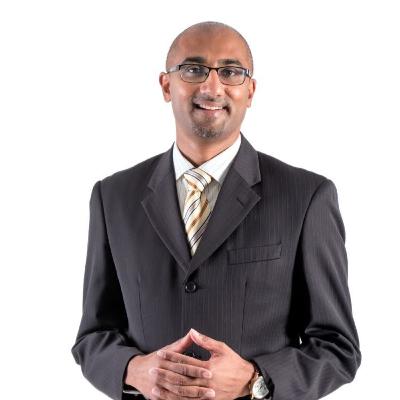
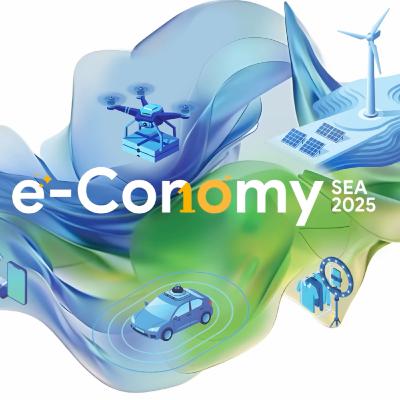

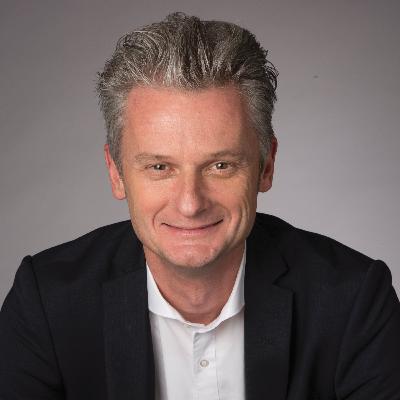
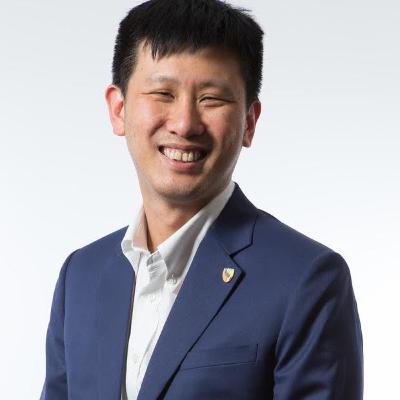
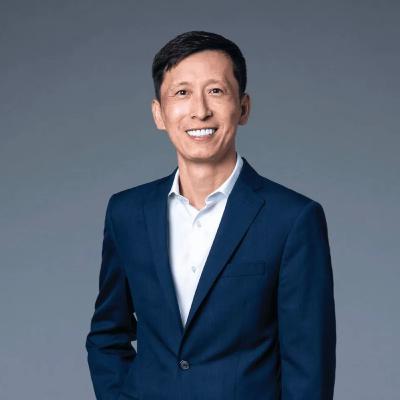
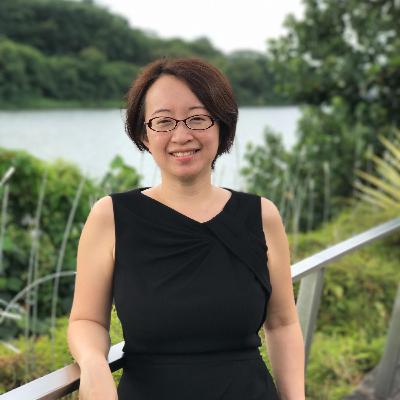
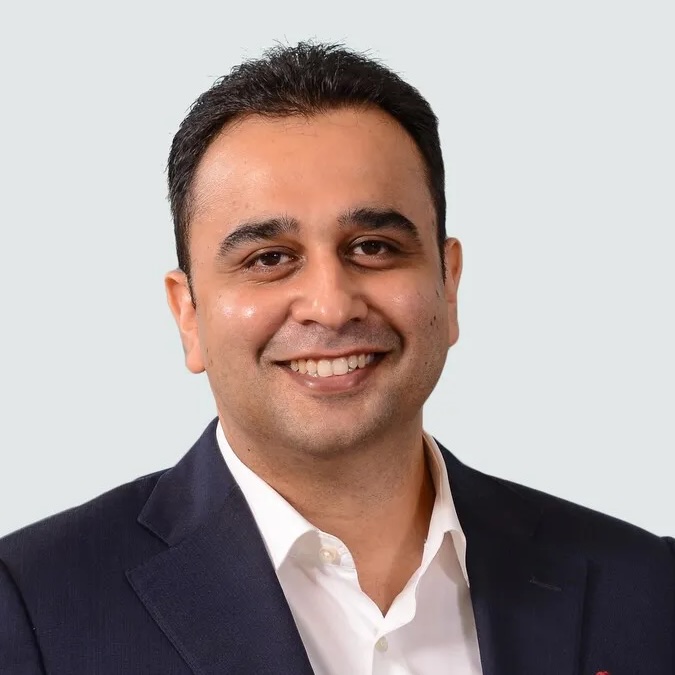
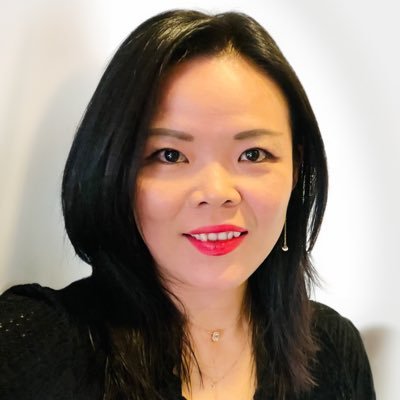


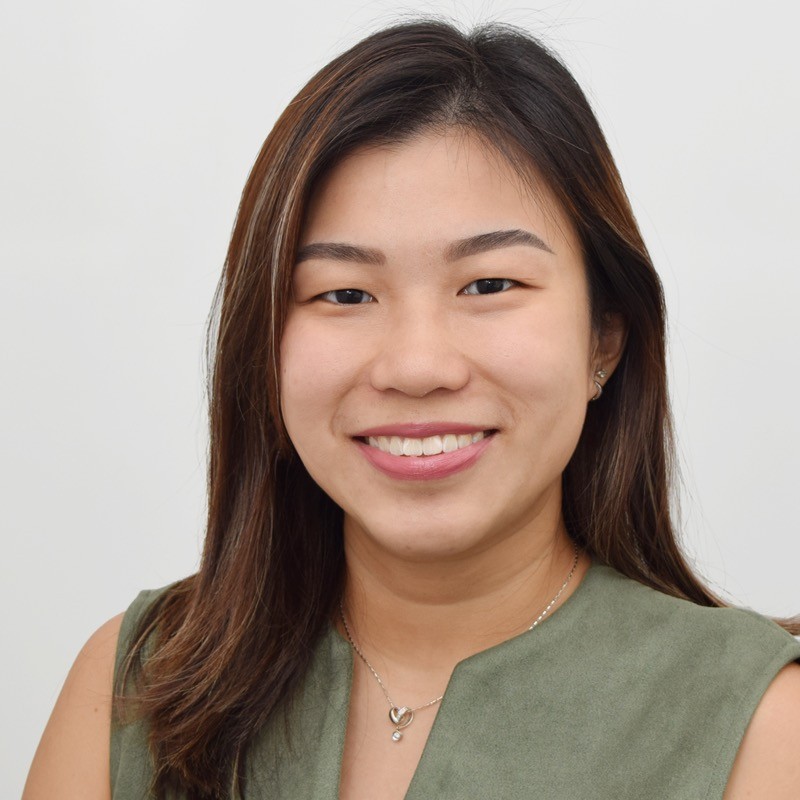
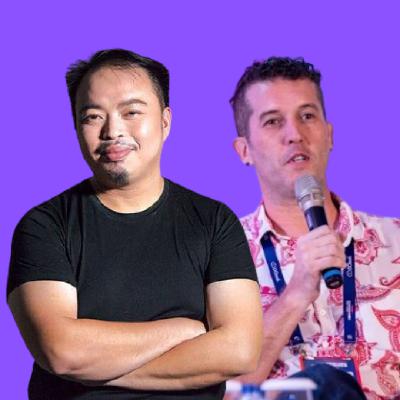
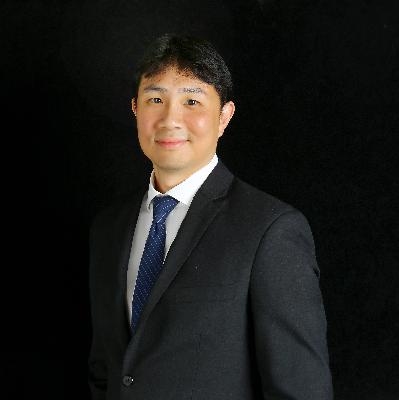
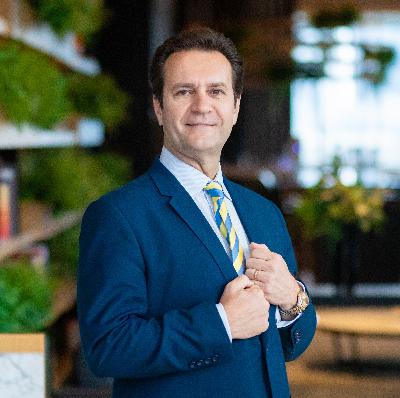



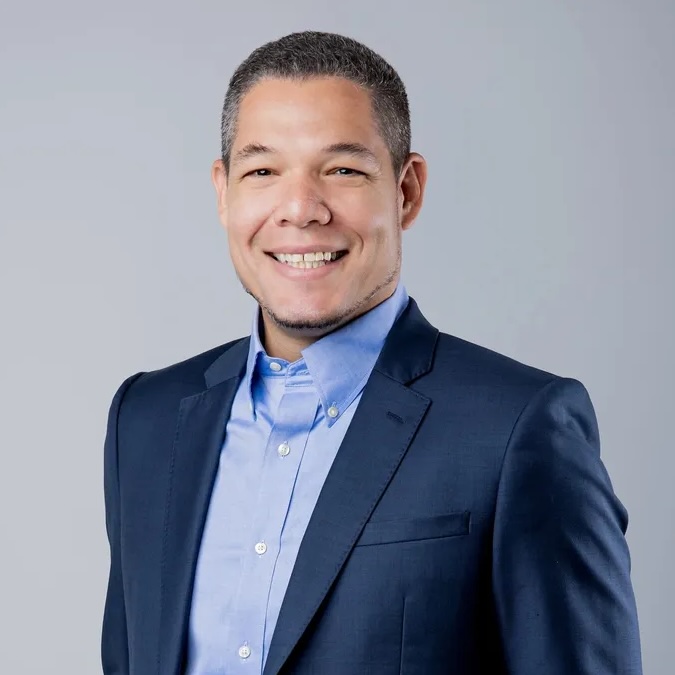



I enjoyed reading this, thanks for sharing. Asia is a diverse continent, where every country has its own unique culture, language, and traditions. Its civilization and history are very old. The food, music, and festivals of India, China, Japan, Thailand, and many other countries are famous all over the world. Read more info about this beautiful country from https://www.topessaywriting.org/samples/asia because the beauty of Asia is reflected not only in its natural scenery but also in the warmth and hospitality of the people here.